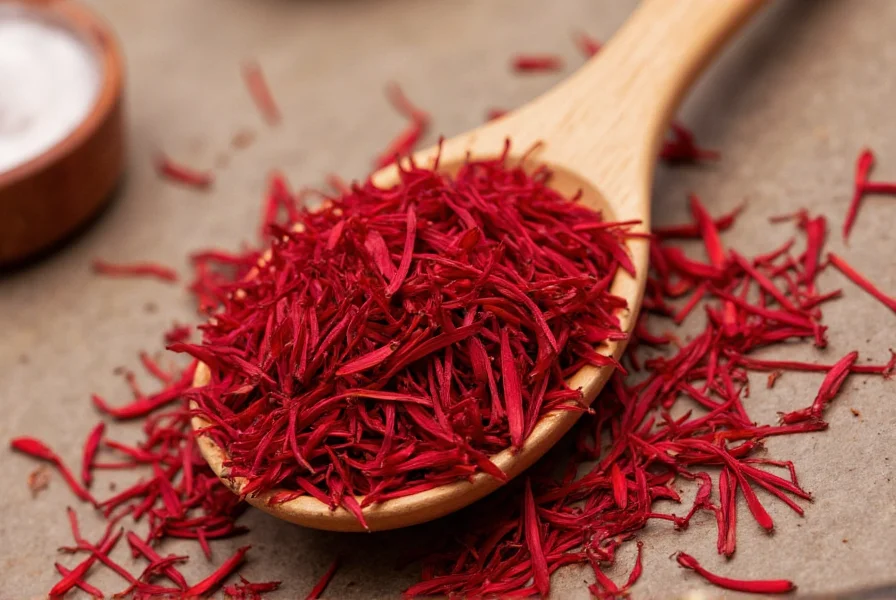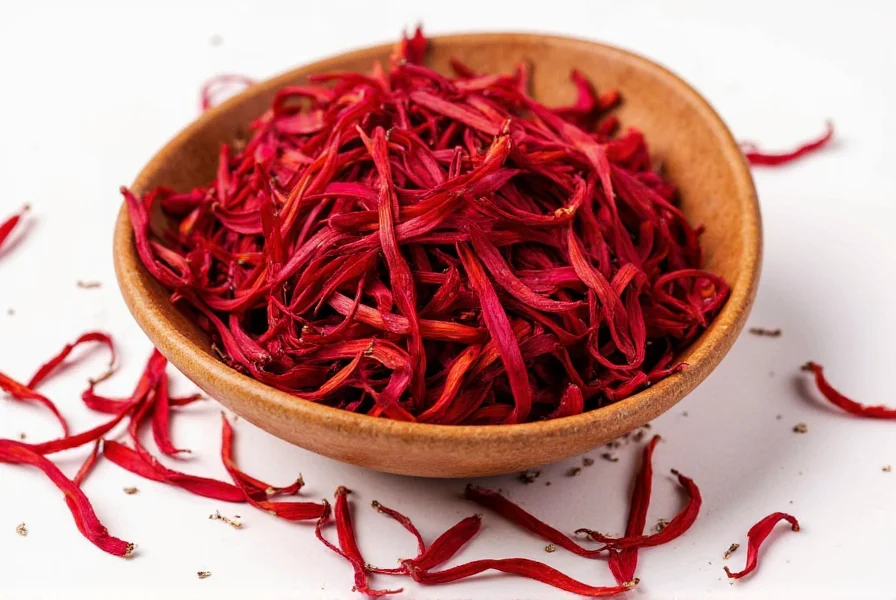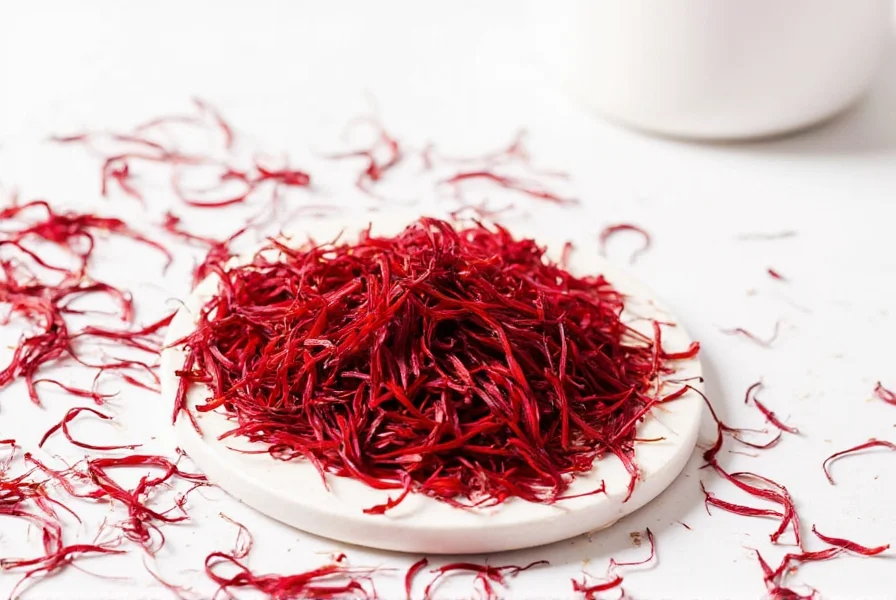Saffron, the world's most expensive spice harvested from Crocus sativus flowers, has gained attention in wellness circles as \"happy saffron\" due to emerging research about its potential mood benefits. This golden spice contains bioactive compounds like crocin and safranal that may influence brain chemistry related to emotional wellbeing.
The Science Behind Saffron and Mood Regulation
Multiple clinical trials have investigated saffron's potential as a natural mood enhancer. A comprehensive 2020 meta-analysis published in Phytotherapy Research reviewed 13 studies involving 907 participants with mild to moderate depression. The analysis concluded that saffron extract demonstrated significant antidepressant effects compared to placebo, with efficacy comparable to conventional antidepressants like fluoxetine and imipramine, but with fewer reported side effects.
The primary mechanisms appear to involve:
- Inhibition of serotonin, dopamine, and norepinephrine reuptake in the brain
- Antioxidant properties that may protect neural pathways
- Modulation of the hypothalamic-pituitary-adrenal (HPA) axis, which regulates stress response
- Anti-inflammatory effects that may influence neuroinflammation linked to depression
| Study | Participants | Dosage | Duration | Key Finding |
|---|---|---|---|---|
| Mohammadpour et al. (2018) | 40 adults | 30mg/day saffron extract | 6 weeks | Significant improvement in depression scores vs placebo |
| Hausenblas et al. (2013) | Meta-analysis of 5 studies | 20-30mg/day | 6-8 weeks | Superior to placebo, comparable to SSRIs for mild-moderate depression |
| Lopresti et al. (2014) | 56 adults | 15mg twice daily | 8 weeks | Reduced anxiety symptoms alongside depression improvement |
Understanding Saffron Extracts for Mood Support
Not all saffron products deliver the same potential mood benefits. Research primarily focuses on standardized extracts containing specific concentrations of active compounds:
- Affron®: A patented water-based extract from saffron petals containing 3.5% Lepticrosalides®
- Satiereal®: Contains 0.3% safranal and 3.0% crocin
- Traditional stigma extracts: Typically standardized to 2% safranal and 5-8% crocin
When examining saffron for mood support, research suggests the stigma (the red threads) contains higher concentrations of mood-relevant compounds than the petals. However, some commercial products use petal extracts which may have different efficacy profiles.

Practical Considerations for Using Saffron
For those interested in exploring saffron's potential mood benefits, several practical factors deserve attention:
Dosage Guidelines from Clinical Research
Most studies showing mood benefits used 30mg per day of standardized saffron extract, typically divided into two 15mg doses. This differs significantly from culinary use, where just 15-30mg of saffron threads might flavor an entire dish for multiple people.
Safety Profile and Potential Interactions
Saffron appears generally safe at research doses, with mild side effects like dry mouth or appetite changes reported in some studies. However, important considerations include:
- High doses (above 1.5g daily) may be toxic
- Possible interactions with antidepressant medications (SSRIs, MAOIs)
- Contraindicated during pregnancy in medicinal doses
- May lower blood pressure, requiring monitoring for those on hypertension medication
Realistic Expectations for Mood Support
While research is promising, saffron should be viewed as a complementary approach rather than a standalone solution for depression. The observed effects are generally modest and may take 4-8 weeks to manifest. It works best as part of a comprehensive approach including therapy, lifestyle changes, and potentially conventional treatment when needed.
How Saffron Compares to Other Natural Mood Support Options
When considering natural approaches for mood support, saffron holds a unique position:
- vs St. John's Wort: Saffron appears to have fewer drug interactions and a better safety profile, though St. John's Wort has more extensive research for depression
- vs Omega-3 Fatty Acids: Saffron may work faster (4-6 weeks vs 8-12 weeks), but omega-3s offer broader cardiovascular benefits
- vs 5-HTP: Saffron has more research specifically for depression, while 5-HTP may cause more gastrointestinal side effects
Unlike many herbal supplements, saffron has been studied in direct comparison with conventional antidepressants, showing comparable efficacy for mild to moderate depression in several trials.

Quality Considerations for Saffron Products
The saffron market faces significant quality challenges that affect potential mood benefits:
- Adulteration is common, with up to 50% of commercial saffron containing fillers
- Geographical origin affects potency (Iranian and Kashmiri saffron typically highest quality)
- Proper storage is critical as light and heat degrade active compounds
- Look for products with ISO 3632 certification for quality verification
For mood support specifically, standardized extracts with verified crocin and safranal content provide more reliable dosing than loose saffron threads. Third-party testing certifications from organizations like USP or NSF add additional quality assurance.
Integrating Saffron into a Holistic Mood Support Strategy
Saffron works best as part of a comprehensive approach to emotional wellbeing. Consider combining saffron supplementation with:
- Regular physical activity (30 minutes daily)
- Mindfulness or meditation practices
- Adequate sleep hygiene
- Social connection and support
- Professional therapy when needed
Remember that saffron for mood support represents a complementary approach, not a replacement for professional mental health care. Those experiencing significant depression symptoms should consult healthcare providers before starting any supplement regimen.
Current Research Limitations and Future Directions
While saffron research is promising, several limitations exist:
- Most studies have small sample sizes (typically under 100 participants)
- Long-term efficacy and safety data beyond 12 weeks is limited
- Research primarily focuses on mild to moderate depression, not severe cases
- Optimal formulation and delivery methods still being investigated
Future research directions include investigating saffron's potential for anxiety disorders, seasonal affective disorder, and as an adjunct to conventional antidepressants for treatment-resistant depression.
Frequently Asked Questions About Happy Saffron
How long does it take for saffron to improve mood?
Most clinical studies show mood improvements beginning at 4 weeks, with maximum effects typically observed between 6-8 weeks of consistent daily use at 30mg of standardized extract. Individual responses vary based on metabolism, depression severity, and other factors.
Can I get mood benefits from culinary saffron use?
While culinary use of saffron provides some beneficial compounds, the amounts typically used in cooking (15-30mg for an entire dish serving multiple people) are significantly lower than the 30mg daily doses used in mood research. Standardized extracts provide more consistent and concentrated levels of active compounds needed for potential mood effects.
Is saffron safe to use with antidepressant medications?
Combining saffron with antidepressants like SSRIs requires medical supervision due to potential serotonin-related interactions. While some studies have safely combined saffron with conventional antidepressants, self-medicating without professional guidance could lead to serotonin syndrome. Always consult your healthcare provider before combining treatments.
What's the difference between saffron stigma and petal extracts for mood support?
Saffron stigma (the red threads) contains higher concentrations of crocin and safranal, the compounds most associated with mood benefits. Petal extracts (like Affron®) are less expensive but contain different compound profiles. Research suggests stigma extracts may provide more consistent mood benefits, though some petal extracts also show positive results in clinical studies.
Can saffron help with anxiety as well as depression?
Emerging research suggests saffron may have benefits for anxiety symptoms, particularly when they co-occur with depression. A 2015 study in the Journal of Complementary and Integrative Medicine found saffron reduced anxiety scores in participants with major depressive disorder. However, research specifically targeting anxiety disorders is more limited compared to depression research.











 浙公网安备
33010002000092号
浙公网安备
33010002000092号 浙B2-20120091-4
浙B2-20120091-4